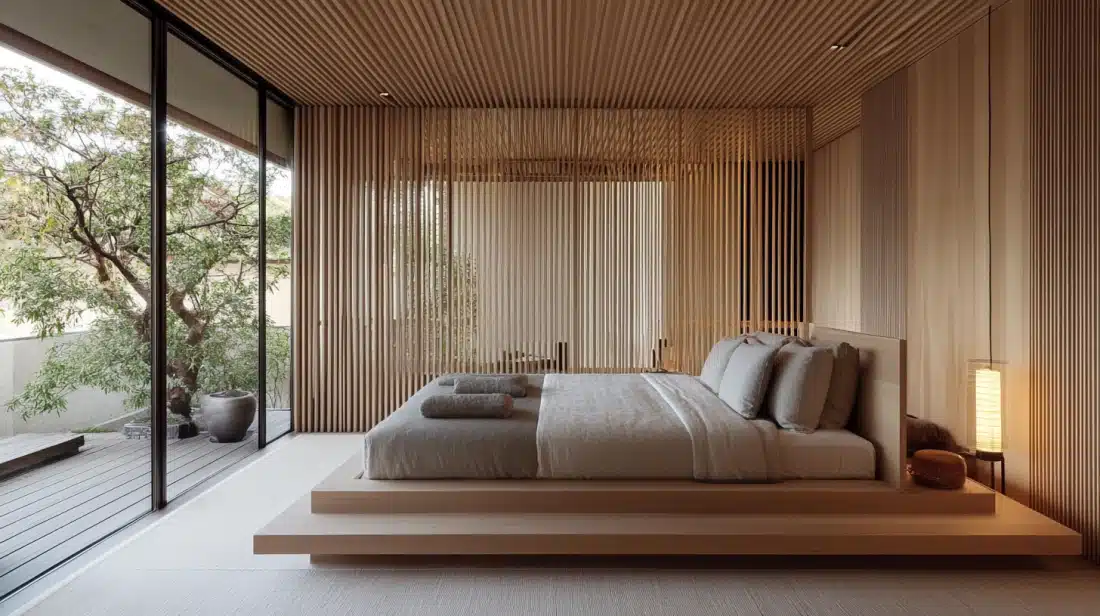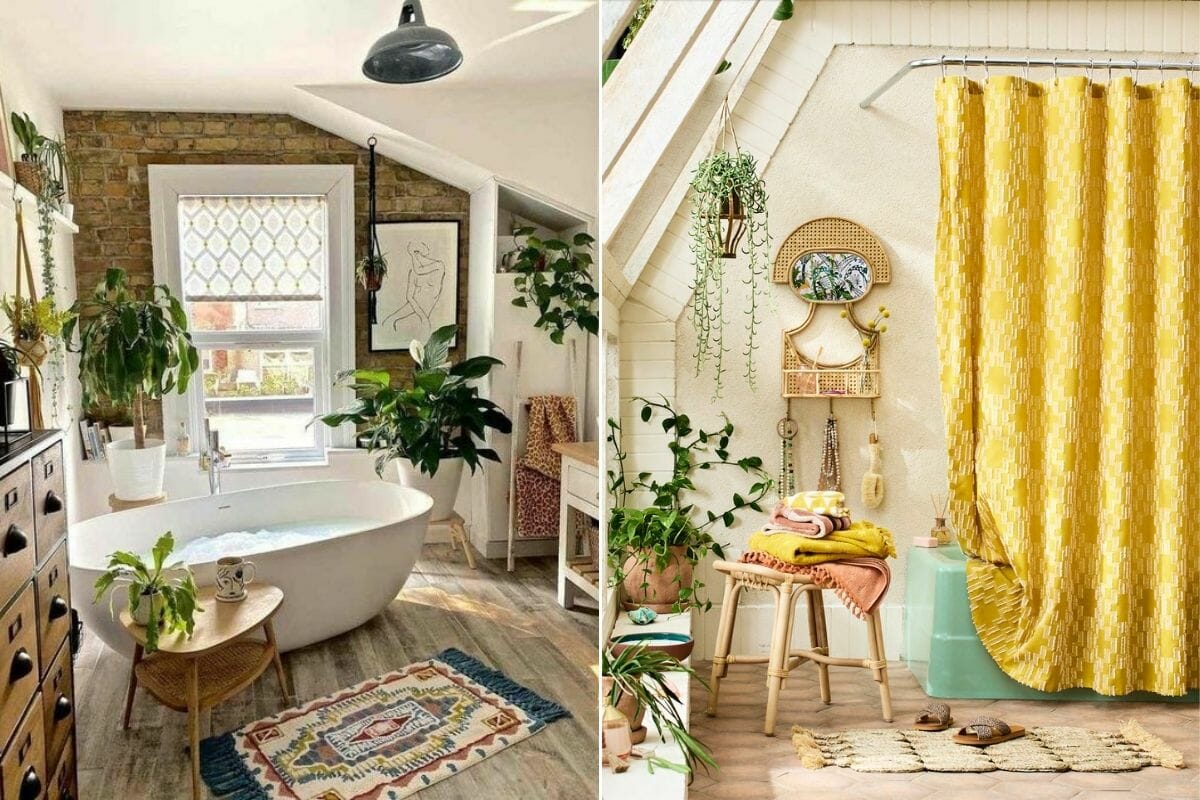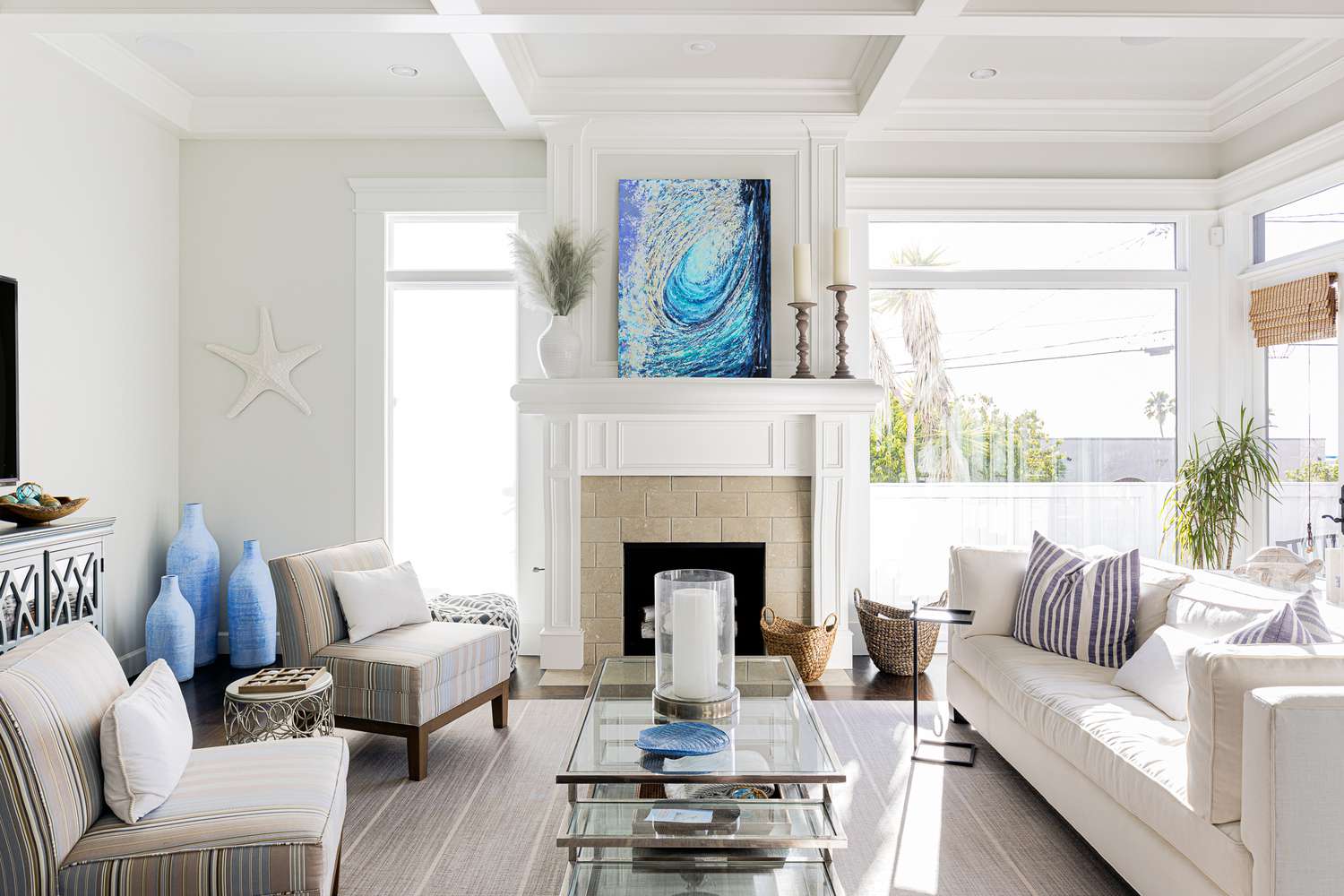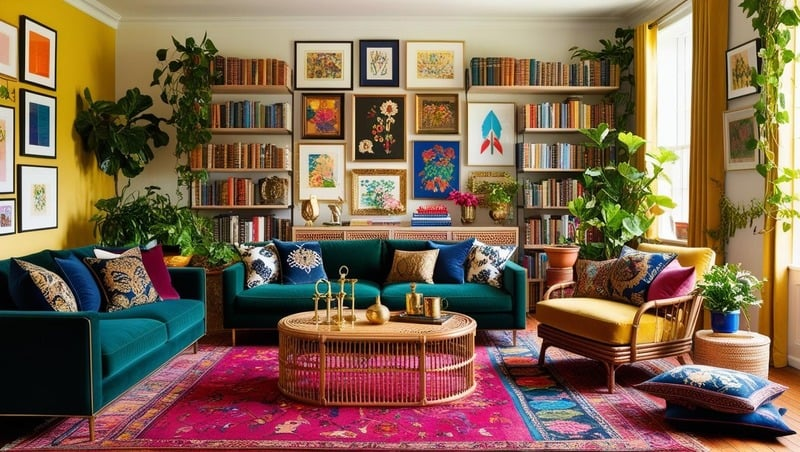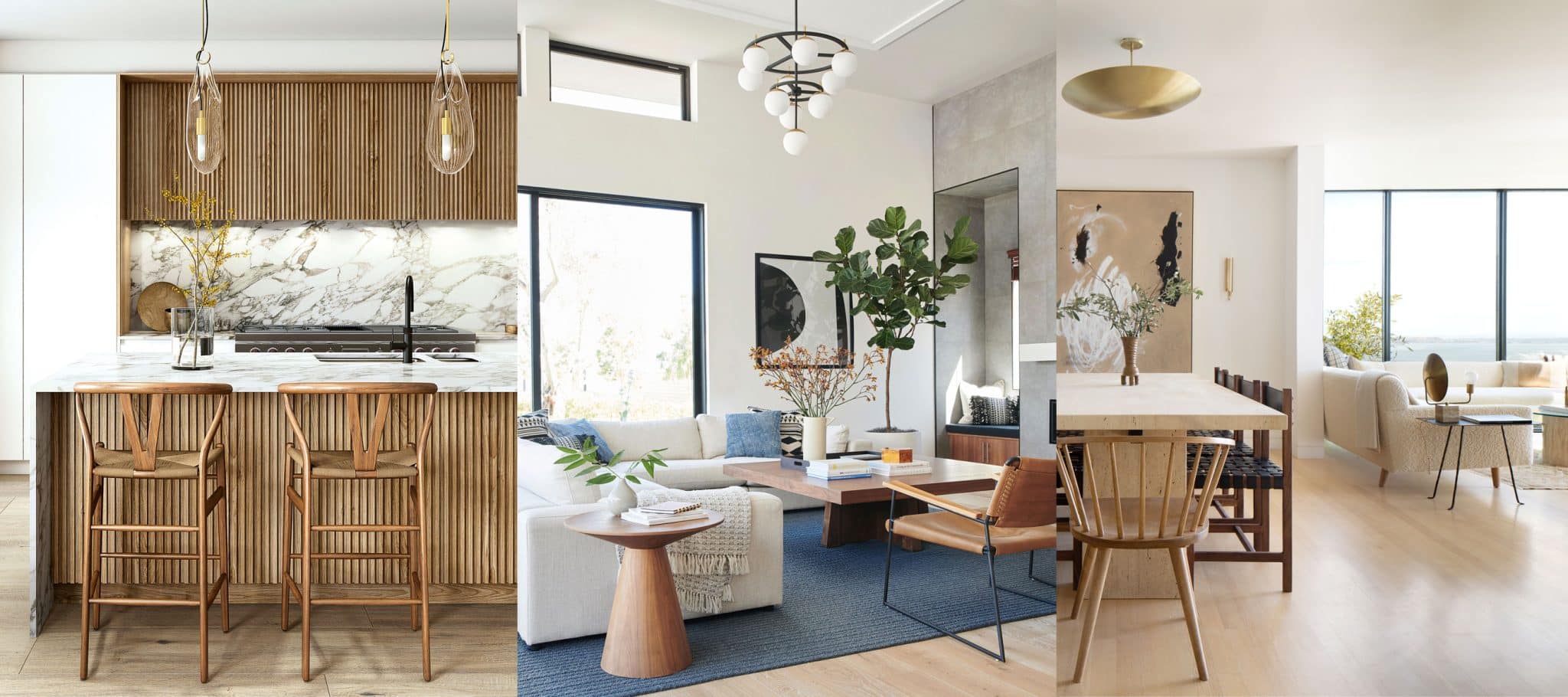Japandi Bedroom Ideas: Transform Your Sleep Space with Minimalist Style
Imagine a bedroom that combines the best of two design worlds: Japanese simplicity and Scandinavian coziness. This is the essence of Japandi style, a growing trend in home decor. Japandi bedrooms blend clean lines, natural materials, and soothing colors to create peaceful sleep spaces.
If you want to refresh your bedroom, Japandi design offers a perfect balance of form and function. This style strips away clutter and focuses on what’s essential, helping you create a calm retreat from the busy world outside.
In this guide, we’ll talk about Japandi bedroom ideas that can transform your sleep space. From choosing the right color palette to selecting furniture and decor, you’ll learn how to bring this minimalist style into your home. Get ready to discover how Japandi design can help you create a beautiful and restful bedroom.
Understanding Japandi Bedroom Design
Japandi design blends Japanese and Scandinavian styles, creating a look that’s both simple and cozy. In a Japandi bedroom, you’ll find a mix of clean lines and warm touches. This style takes the best parts of both worlds – Japanese neatness and Nordic comfort.
Key features of Japandi bedrooms include:
- Neutral colors like soft greys, whites, and earth tones
- Natural materials such as wood, bamboo, and stone
- Uncluttered spaces with carefully chosen items
Japandi style helps create a calm, peaceful bedroom where you can truly relax and recharge.
How is Japandi Different from Scandinavian Design?
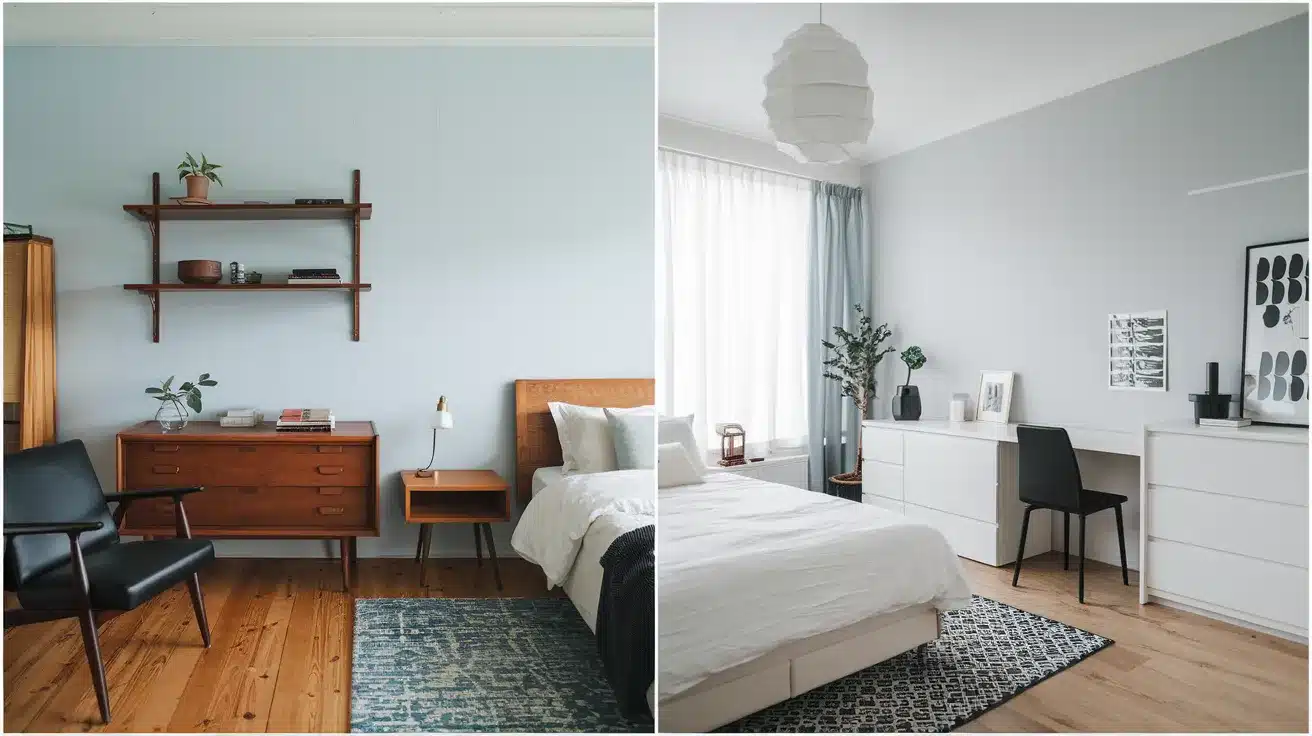
While Japandi and Scandinavian designs share some traits, they have unique differences:
Color palette: Scandinavian rooms often use brighter whites and pastels. Japandi bedrooms lean towards warmer, earthier tones.
Textures: Scandinavian style favors soft, fluffy textures. Japandi incorporates smoother surfaces and natural textures like raw wood.
Decor: Scandinavian rooms might have more decorative items. Japandi spaces keep decor minimal, focusing on a few meaningful pieces.
Japandi Color Palette for Your Bedroom
Choosing the right colors is key to creating a Japandi bedroom. This style uses a mix of calm, nature-inspired shades that help create a peaceful sleep space.
Neutral Tones: Whites, Beiges, Grays
Neutral colors form the base of any Japandi bedroom. These shades create a clean, open feel:
Whites: Use soft, warm whites instead of stark ones. Think of creamy off-whites or gentle ivory tones.
Beiges: Light beige adds warmth without being too bold. It pairs well with natural wood tones.
Grays: Opt for light to medium grays. These can range from soft dove gray to deeper charcoal shades.
Muted Earth Tones and Soft Pastels
To add a touch of color to your Japandi bedroom, look to nature for inspiration:
Earth tones: Use gentle browns, greens, and warm reds. Think of colors you’d find in nature.
Soft pastels: Choose very light, barely-there shades of pink, blue, or lavender.
11 Japandi Bedroom Design Inspirations
Japandi bedroom design blends Japanese simplicity with Scandinavian coziness to create peaceful, stylish spaces. These 11 inspirations showcase key elements of this popular style and offer ideas for transforming your bedroom into a calming retreat.
1. Light wood furniture
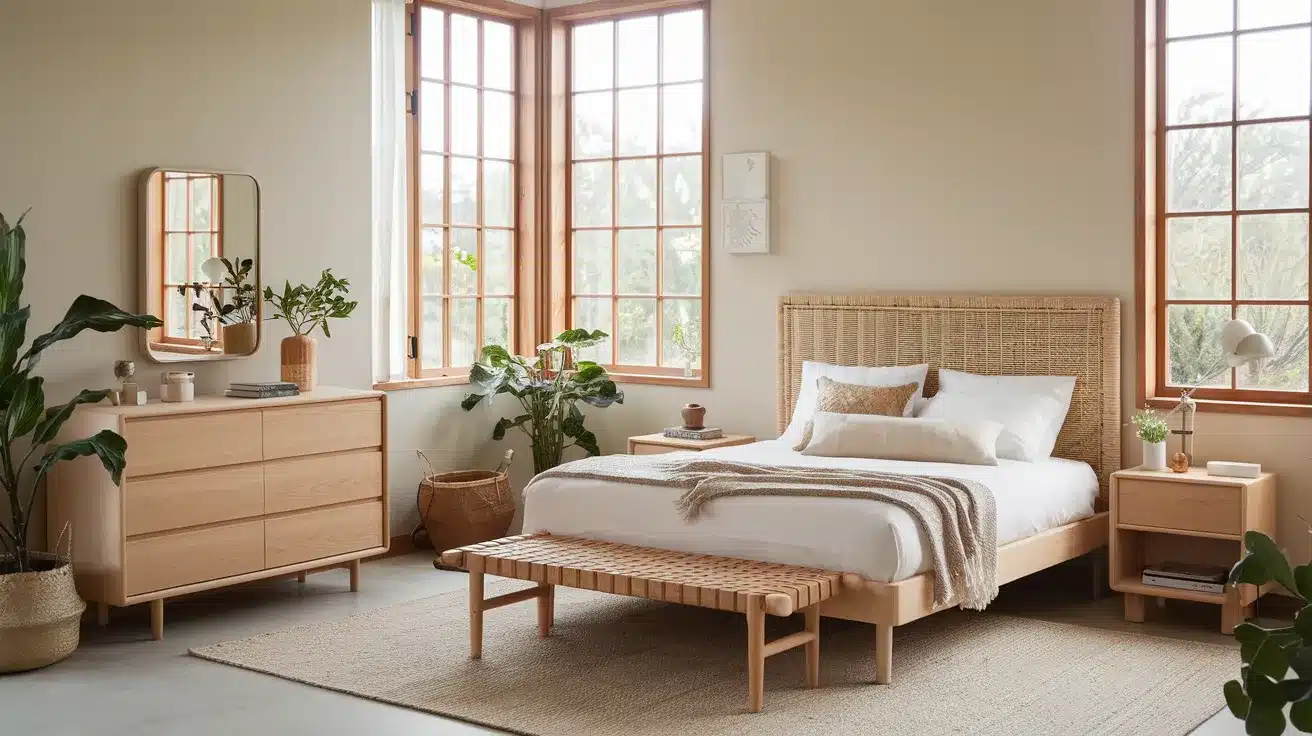
Beds, dressers, and nightstands made from pale wood like ash or birch. Japandi themes: This reflects the Scandinavian love for light woods and the Japanese use of natural materials. It creates a bright, airy feel while bringing nature indoors.
2. Globe lighting
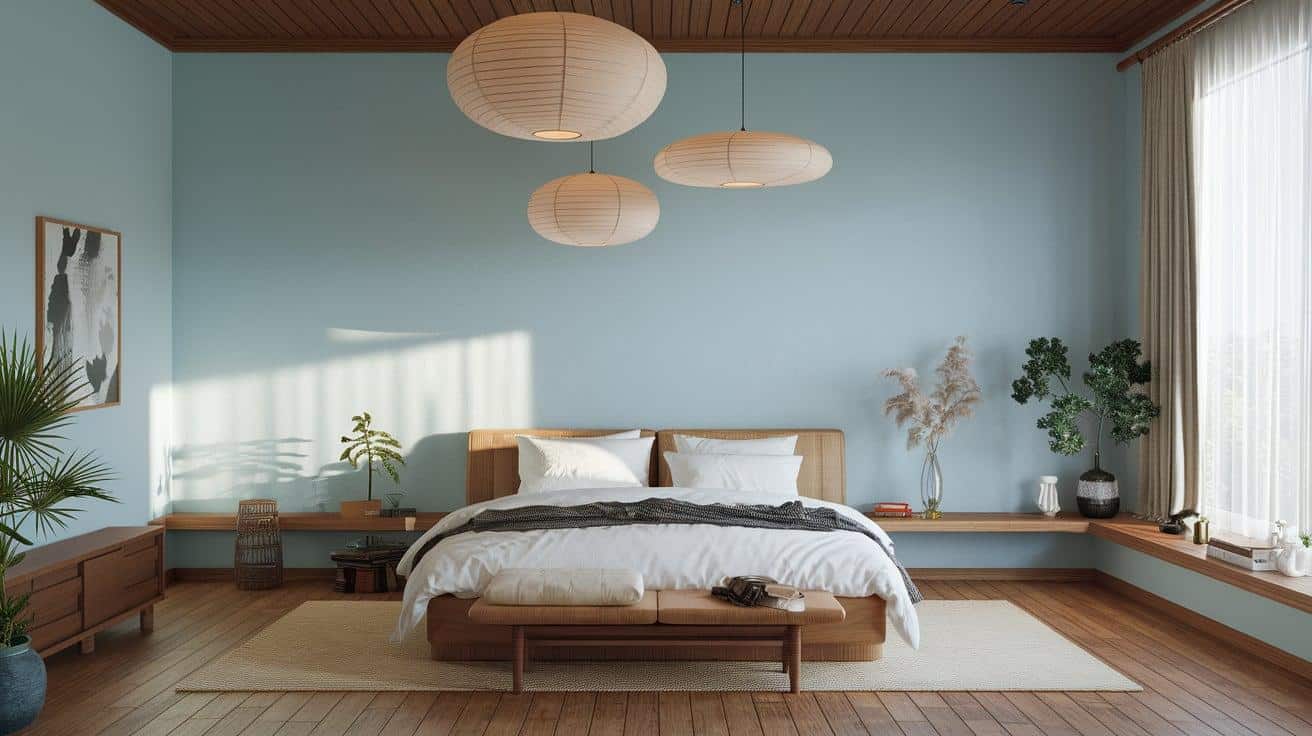
Round, paper-like lamps that give off a soft, warm glow. Japandi themes: These lights blend Japanese lantern styles with Scandinavian simplicity. They provide gentle lighting that creates a cozy, calm atmosphere.
3. Nature-inspired artwork
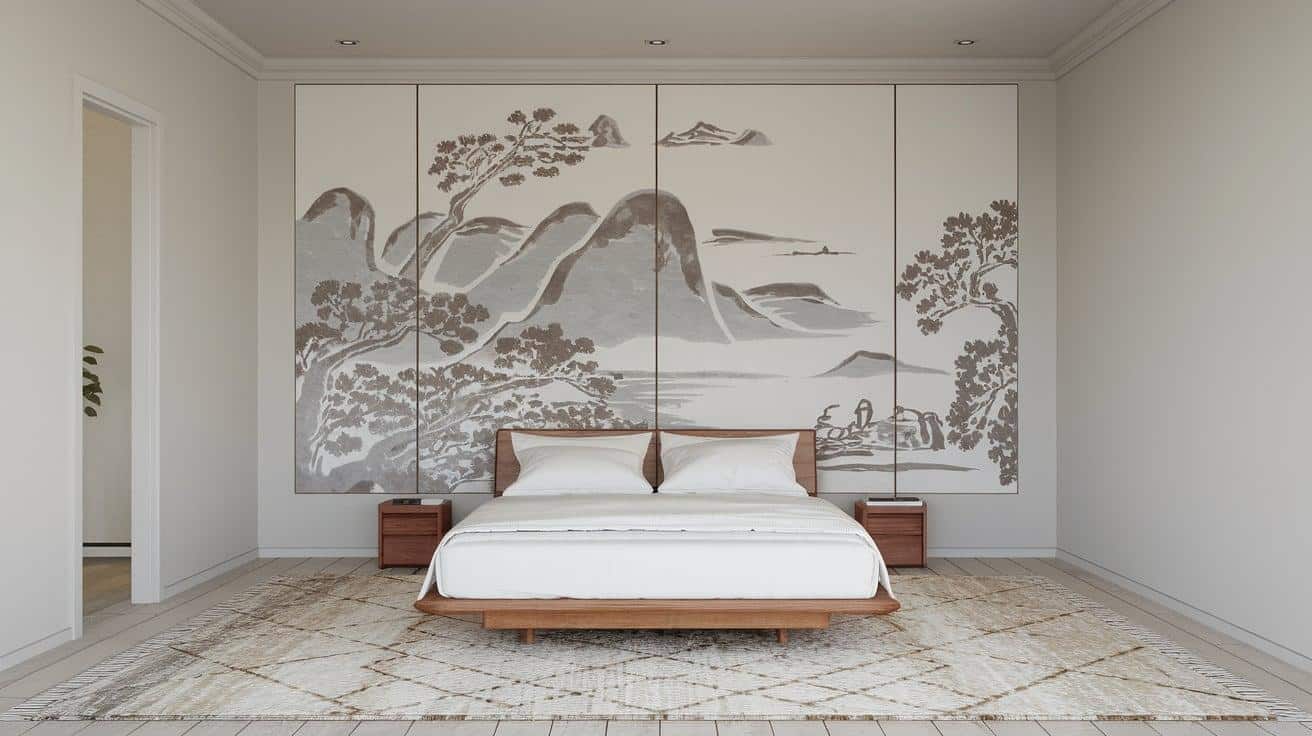
Wall art featuring plants, landscapes, or abstract natural forms. Japandi themes: This combines the Japanese love of nature with Scandinavian minimalist art styles. It brings the outdoors in, creating a peaceful, grounded feel.
4. Under-bed area rugs
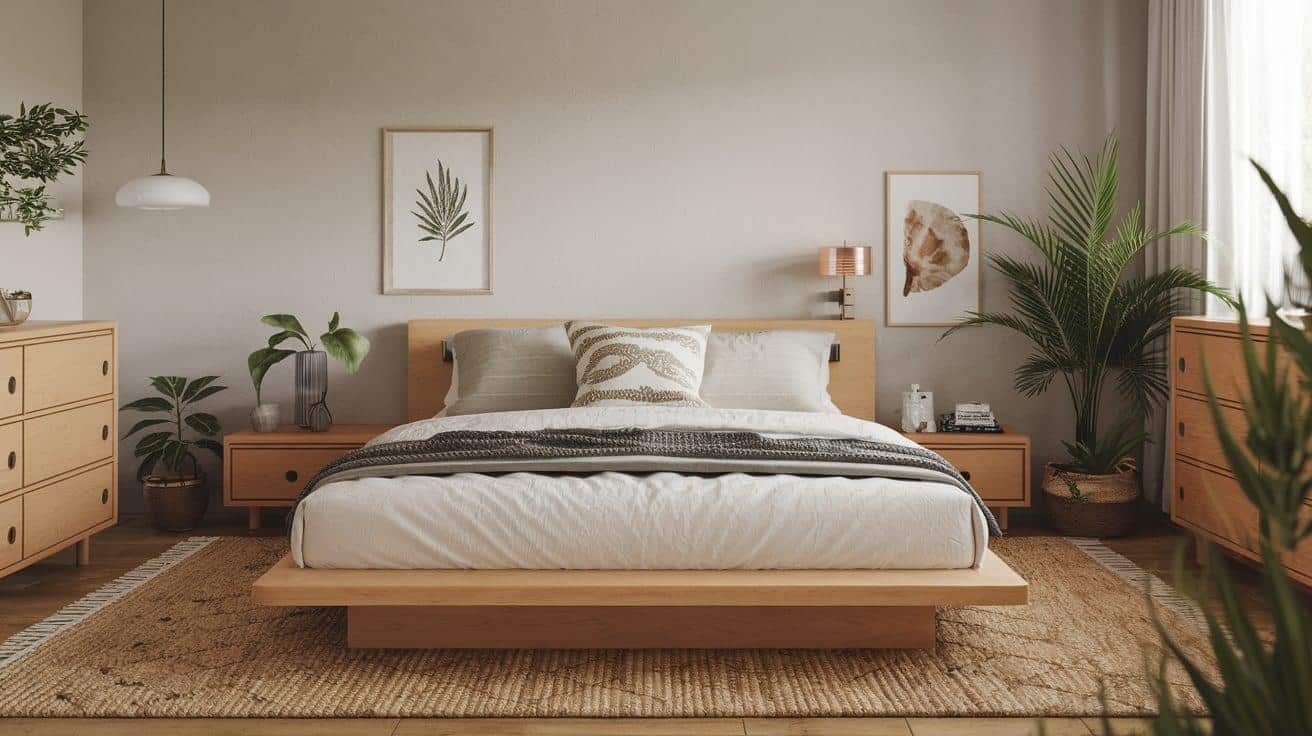
Soft, natural fiber rugs placed partially under the bed. Japandi themes: These rugs add warmth and texture, reflecting both styles’ focus on comfort. The natural materials align with Japandi’s connection to nature.
5. Low bed frames
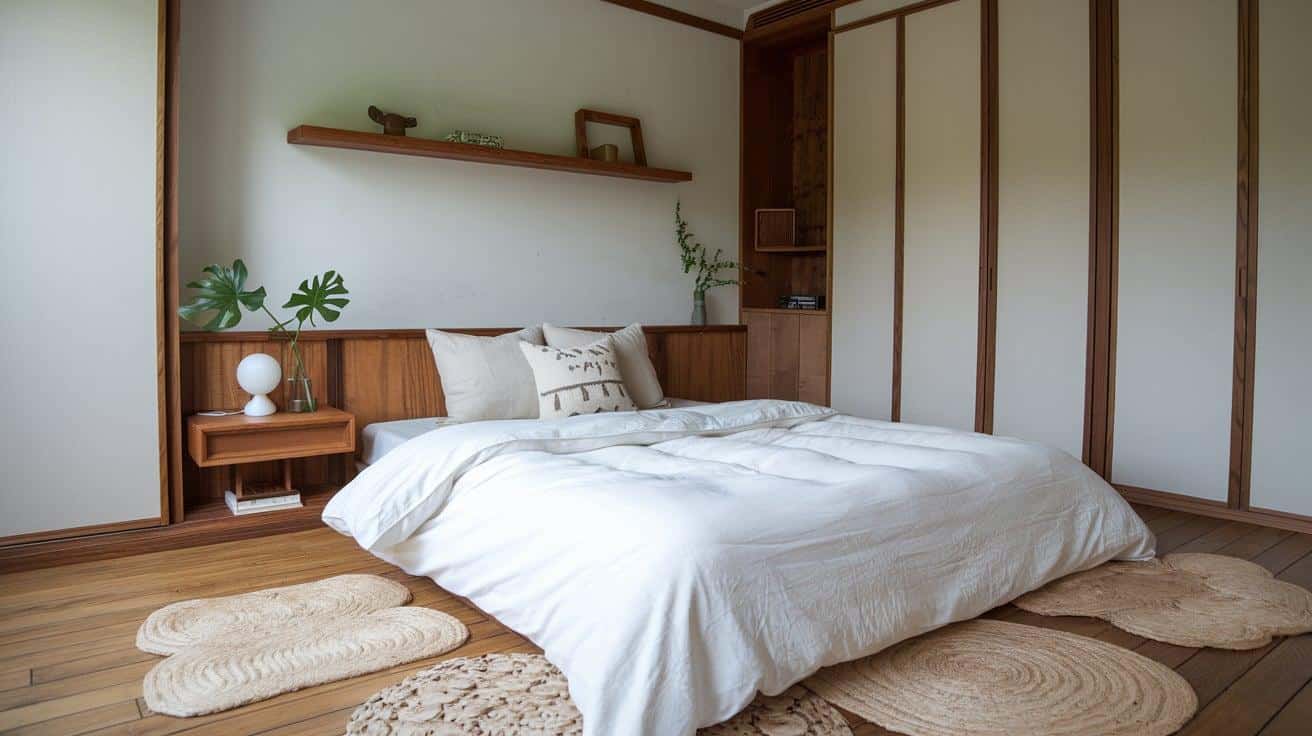
Platform beds sitting close to the ground. Japandi themes: Low beds are common in both Japanese and modern Scandinavian design. They create a grounded feeling and make the room feel more spacious.
6. Natural Materials: Bringing Nature Indoors
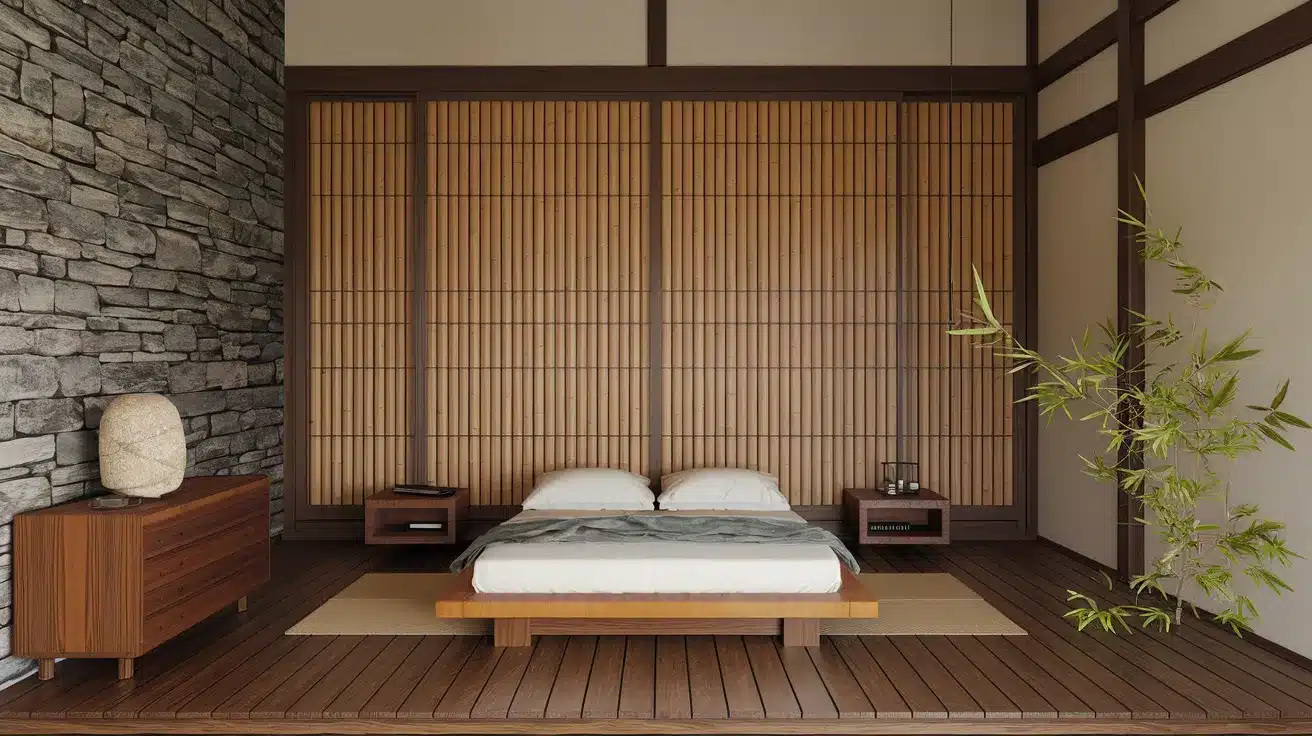
Using wood, stone, bamboo, and other natural elements in the bedroom. Japandi themes: This reflects both cultures’ deep respect for nature. It creates a calm, organic feel that’s key to Japandi style.
7. Bergen Oak Kingsize Bed – Natural
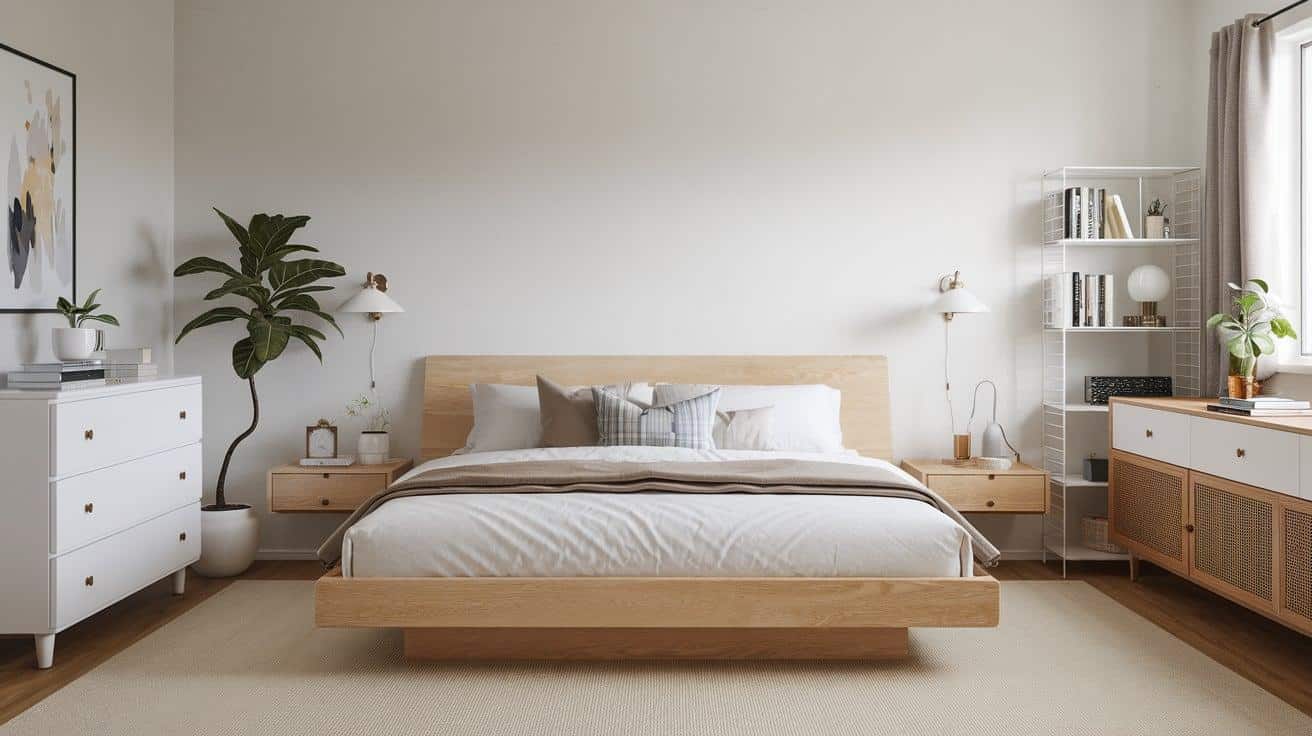
A simple, clean-lined bed made from light oak wood. Japandi themes: The bed’s minimalist design and natural wood reflect both Japanese and Scandinavian aesthetics. It serves as a beautiful, functional centerpiece.
8. Work texture into your space
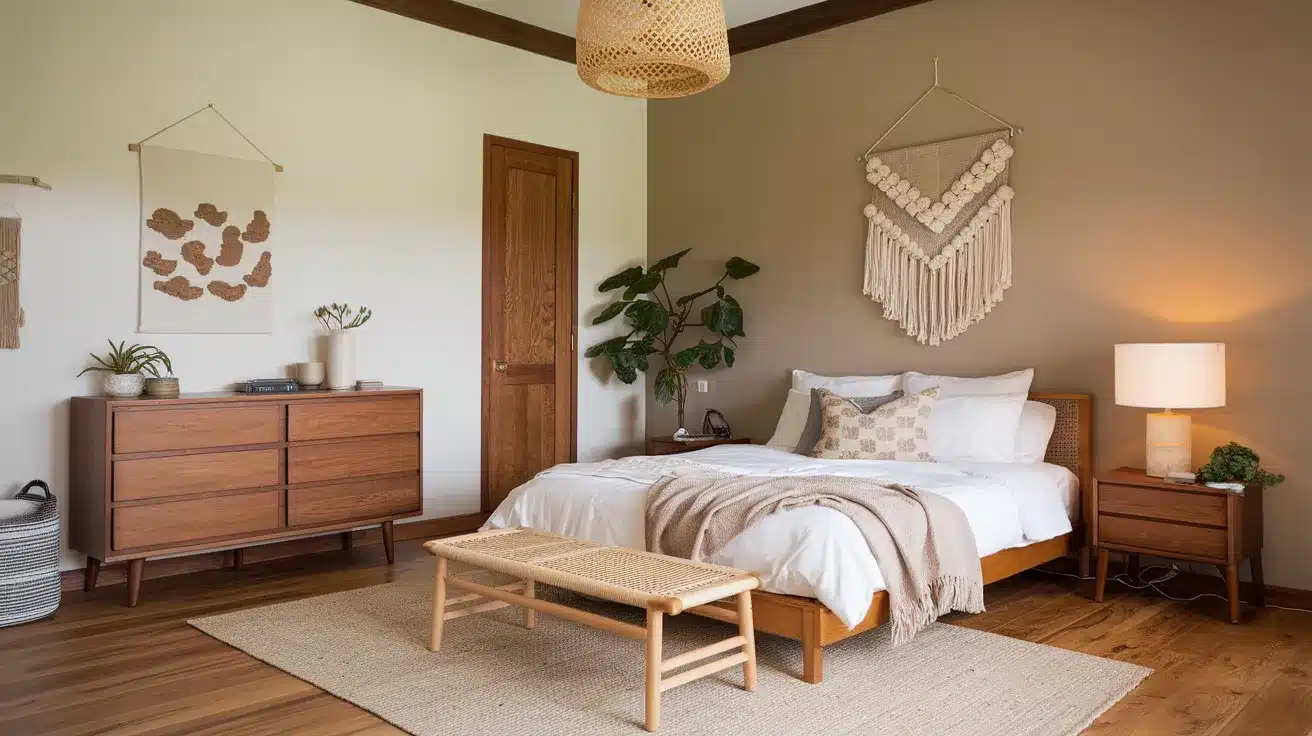
Mixing smooth surfaces with rougher textures like linen, wool, or raw wood. Japandi themes: This blends Scandinavian coziness with Japanese appreciation for natural textures. It adds depth and interest while keeping the overall look simple.
9. Choose unique yet functional decor
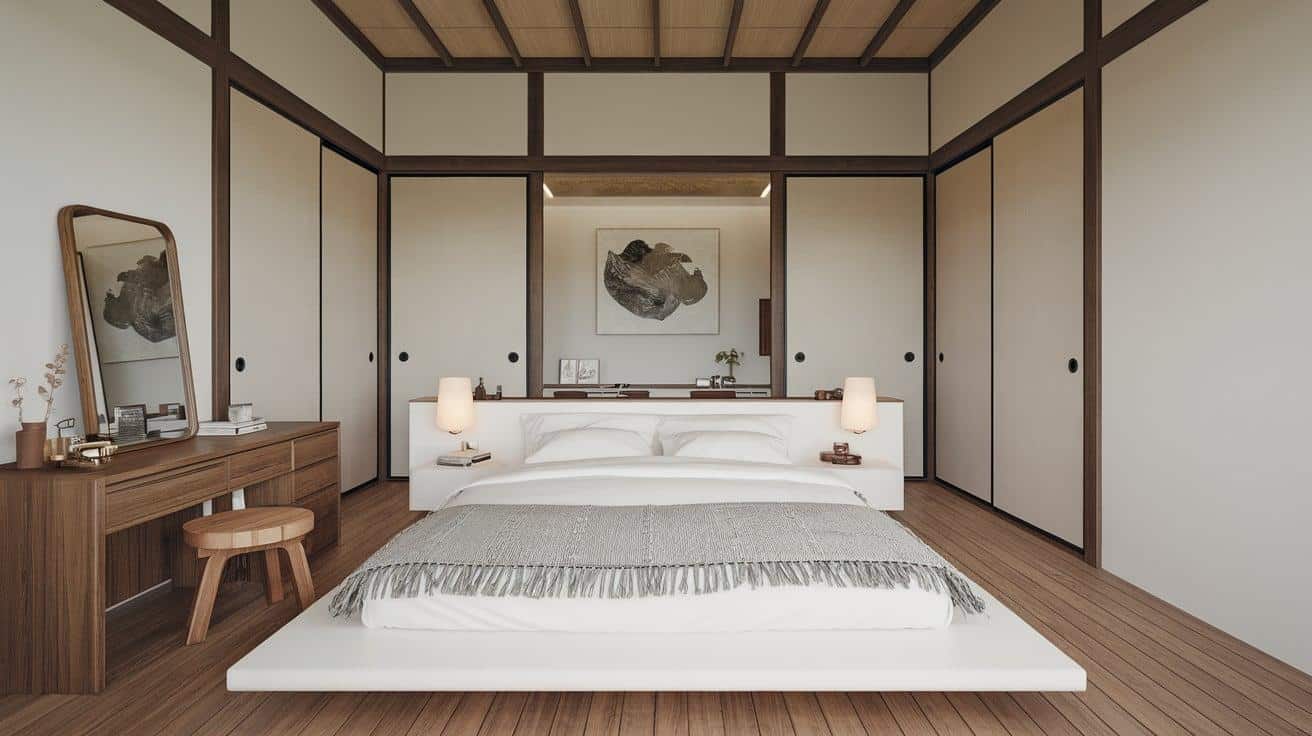
Carefully selected items that are both beautiful and useful. Japandi themes: This reflects the Japanese concept of practical beauty and the Scandinavian focus on functionality. Each piece serves a purpose while adding to the room’s style.
10. Minimalist Japandi Bedroom With Plywood Doors
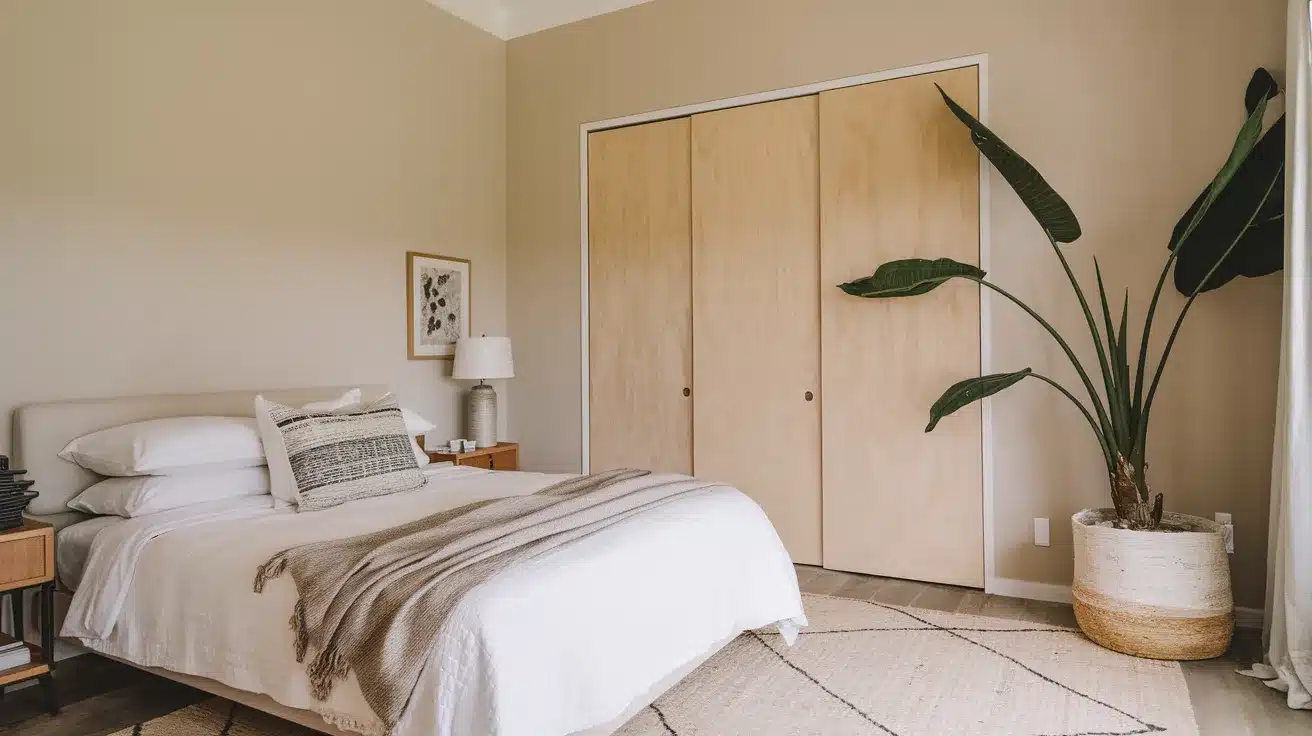
A bedroom with smooth plywood closet doors and minimal furnishings. Japandi themes: The use of plywood shows the Japandi love for simple, natural materials. The minimalist approach reflects both cultures’ preference for uncluttered spaces.
11. Modern Japandi Bedroom With Vertical Oak Wood Slat
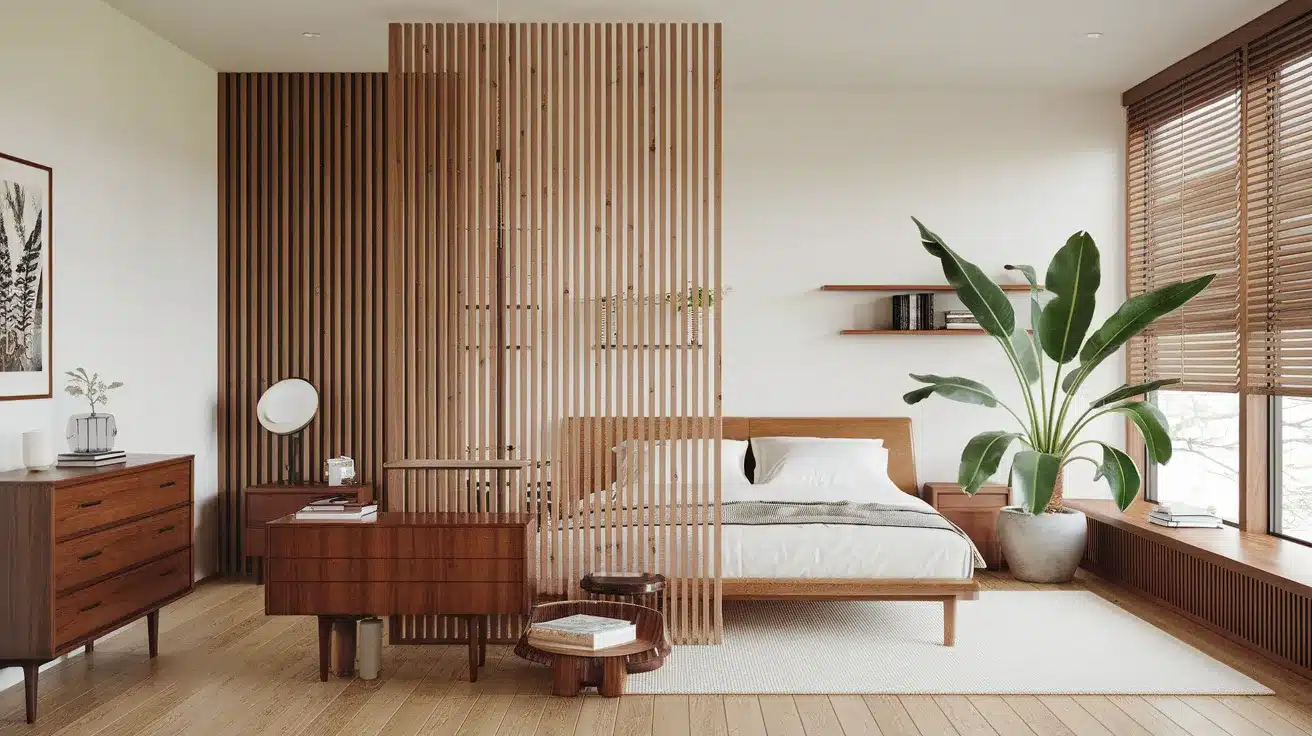
A bedroom featuring a wall or divider made of vertical oak slats. Japandi themes: This design element brings in natural wood texture in a modern way. It combines Japanese architectural elements with Scandinavian wood craftsmanship.
Steps to Create a Japandi Bedroom
Creating a Japandi bedroom combines the best of Japanese and Scandinavian design for a peaceful, minimalist space. Follow these steps to blend natural materials, simple furniture, and a calming color scheme for your perfect Japandi retreat.
Choose a Calming Color Scheme
- Pick soft, neutral wall colors like warm whites or light grays.
- Mix light and dark shades for balance, using darker tones sparingly.
Incorporate Natural Materials
- Select simple wooden furniture with clean lines.
- Use organic textiles like linen or cotton for bedding and curtains.
Select Minimalist Furniture
- Opt for low-profile bed frames to create a grounded feel.
- Choose pieces that offer storage to keep the space clutter-free.
Add Textures Through Textiles
- Layer different textures in bedding for depth and comfort.
- Add warmth with a natural fiber rug or woven curtains.
Japandi Bedroom Furniture and Accessories
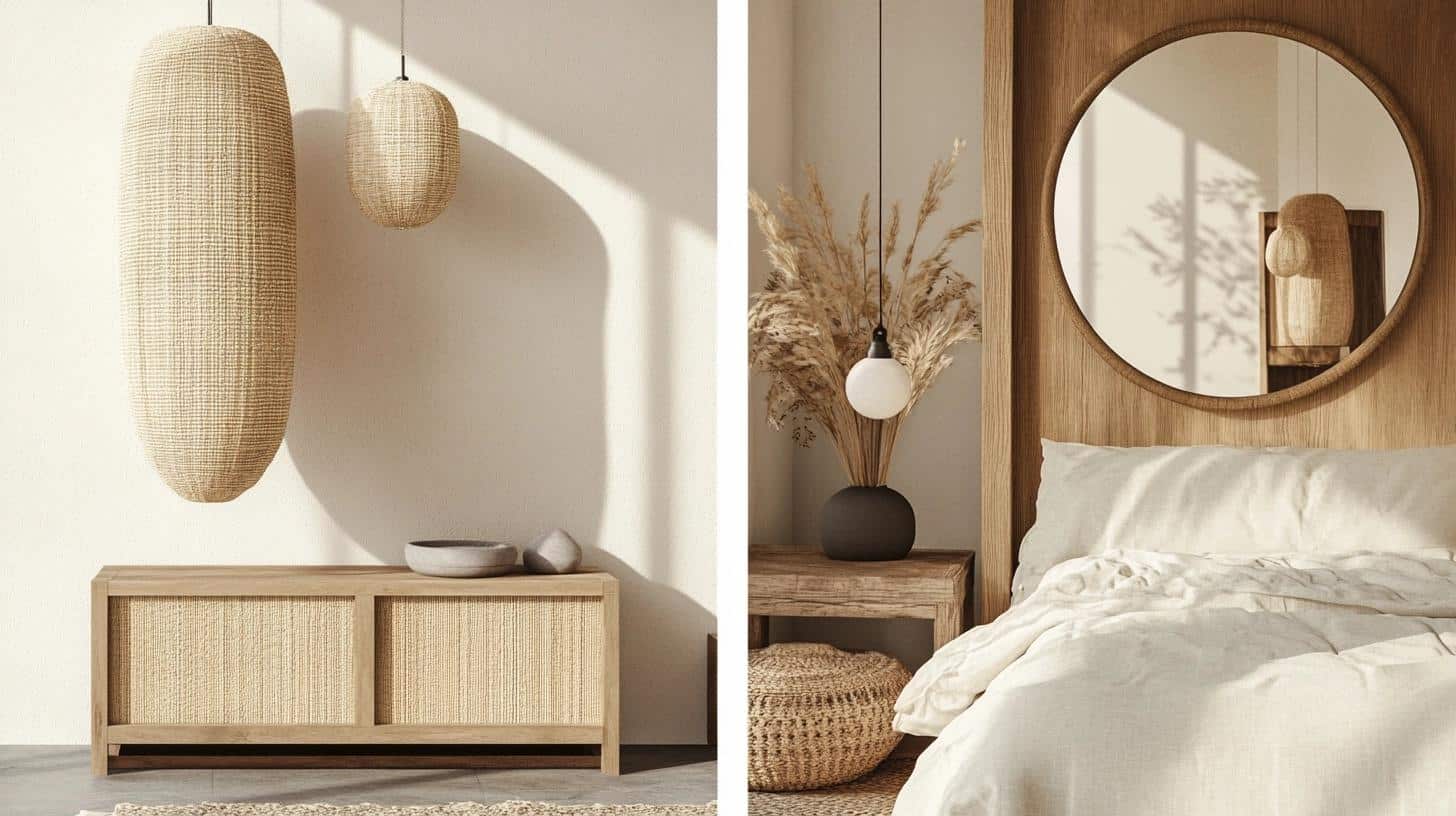
Creating a Japandi bedroom involves carefully selecting furniture and accessories that blend Japanese and Scandinavian design elements. Here’s a comprehensive guide to help you choose the right pieces for your space:
Furniture Recommendations
| Furniture | Recommendations |
|---|---|
| Bed Frames | Look for low platform beds that sit close to the ground. Choose frames made from natural wood. Opt for simple, clean lines without ornate details. |
| Nightstands | Select pieces with a minimalist design; avoid excess drawers or shelving. Match or complement your bed frame’s wood tone. Consider floating nightstands for a streamlined look. |
| Dressers | Choose dressers with smooth, flat fronts; avoid ornate handles or knobs. Look for pieces that offer ample storage to maintain a clutter-free room. Consider a mix of open and closed storage options. |
Accessory Ideas for Your Japandi Bedroom
| Category | Recommendations |
|---|---|
| Lighting | Pendant Lamps: Opt for paper globe lights or simple, geometric designs. Table Lamps: Look for lamps with wooden bases and simple fabric shades. Floor Lamps: Choose slim, minimalist designs that don’t overpower the space. |
| Decor | Mirrors: Select round or oval mirrors with thin, simple frames. Vases: Choose ceramic or glass vases in neutral colors or natural materials. Artwork: Opt for nature-inspired prints or simple, abstract pieces in muted colors. |
Where to Shop for These Decor Items
Online retailers
Muji: Known for minimalist Japanese design
IKEA: Offers affordable Scandinavian-inspired pieces
West Elm: Provides a mix of modern and natural elements
Conclusion
Creating a Japandi bedroom is about finding harmony between Japanese and Scandinavian design principles. This style offers a peaceful retreat from the busy world, focusing on simplicity, natural elements, and thoughtful design.
By choosing a calm color palette, incorporating natural materials, and selecting minimalist furniture, you can transform your bedroom into a serene Japandi-inspired space. Remember to add subtle textures, choose functional yet beautiful accessories, and consider eco-friendly options to embrace this style fully.
A Japandi bedroom isn’t just about looks—it’s about creating a space that promotes relaxation and well-being. Applying these ideas will make your bedroom a calming sanctuary reflecting the best of both design worlds.
We hope this guide inspires you to explore Japandi style and create your own perfect sleeping space.
FAQ (Frequently Asked Questions)
Can I Incorporate Existing Furniture?
Yes, you can incorporate existing furniture into Japandi design. Focus on pieces with clean lines and natural materials. Simplify your space by removing clutter and choosing items that serve a purpose.
Is Japandi Style Suitable for Small Bedrooms?
Absolutely. The Japandi style’s emphasis on minimalism and functionality makes it ideal for small bedrooms. Use a neutral color palette, multi-functional furniture, and simple decorations to create a spacious feel.

